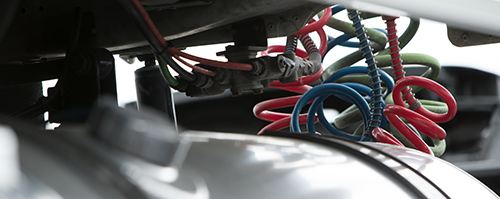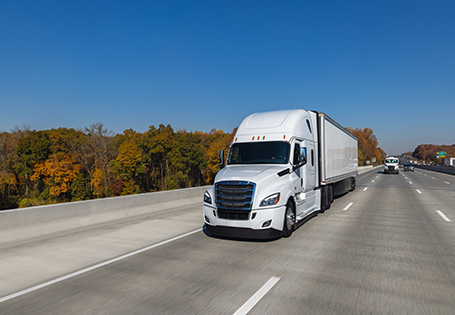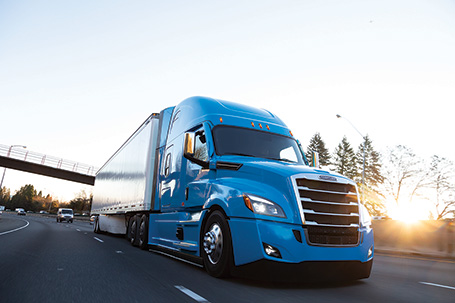How to Maintain Your Used Truck's Aftertreatment System
Published on
12 June 2023
Your Center for 37663
Searching for centers...
No centers found in this area. Please try a different location.

12 June 2023
Over the last few years, the Environmental Protection Agency (EPA) introduced strict truck emissions standards in order to reduce harmful pollutants from being released into the environment. Starting in 2002, these laws have reduced pollutants into the atmosphere by over 90%. During this time, new technologies and systems needed to meet the standards have been added to semi trucks. The benefits these systems provide are a cleaner environment and improved fuel economy for truck owners. However, like any truck component, they need to be maintained.
In the years before these mandates, a semi truck’s exhaust system was composed of a muffler and a tailpipe. Most of the emissions control at that time was performed within the diesel engine itself. But the stricter laws eventually required additions to the exhaust system.
Today, semi truck emissions systems combine exhaust gas recirculation (EGR), selective catalytic reduction (SCR), diesel oxidation catalyst (DOC) and the diesel particulate filter (DPF) to efficiently meet the current emissions standards. SCR treats the exhaust gases by injecting a small amount of diesel exhaust fluid (DEF) into the exhaust stream. DEF reacts with the nitrogen oxide in the SCR catalyst to form nitrogen and water, both safe elements that are released into the air.
Detroit has developed its 1-Box™ configuration, which combines the SCR catalyst, the DOC catalyst, the DPF and DEF into one compact component. Combining all of these systems together lowers engine back pressure and reduces overall weight, yielding better fuel economy. The 1-Box is designed to reduce nitrogen oxides and capture and burn off the soot in the engine’s exhaust gas.
As with any complicated system on a used semi truck, like an engine or a transmission, the 1-Box system requires specific maintenance during the life of the vehicle. Just like failing to properly service the diesel engine, failing to properly service a semi truck’s aftertreatment system can lead to unfortunate and expensive repairs.
Buying a Detroit-certified Reman DPF, cleaned via their proprietary cleaning method, is a great way to set up for success when you purchase your used semi trucks.
Maintaining your aftertreatment system is generally easy. The DPF collects the soot and will eventually need to be replaced. The system will alert you when filter replacement is required. In addition to proper DPF maintenance, make sure the Detroit recommended maintenance intervals are followed to ensure your aftertreatment system is performing to its full potential. These include changing the oil and air filter at the proper intervals, using the proper diesel fuel and maintaining the proper DEF and other fluid levels. All of this information is available in the operator’s manual of the truck, or can be found online. You can also ask your used truck dealer about how to service your aftertreatment system.
Maintenance intervals on all major components (engine, transmission, axles, aftertreatment devices) will change based on the used semi truck’s application and the miles traveled in a year. For example, if you are driving 100,000 miles per year in an on-highway application, you may never experience the need for a stationary regeneration; the regeneration of the aftertreatment system will take place as the truck travels. On the other hand, if the truck runs fewer miles in a local application, it may require a stationary regeneration from time to time. The system will alert you about this so there is no guess work.
At SelecTrucks, we understand the aftertreatment system on a used semi truck can be expensive to service or replace if something goes wrong, as with any major component. That’s why SelecTrucks offers an Aftertreatment System Warranty when you purchase a used semi truck. The warranty period is for 12 months or 100,000 miles and covers parts like the ATS injector, DOC and DPF as progressive damage, header, pressure sensors, DEF tank, doser, NOx sensors and SCR catalyst. It provides added peace of mind as truck technology evolves. Be sure to ask your SelecTrucks dealer about this warranty.
Our trusted team of truck advisors are here to help you reach your goals by providing exceptional used truck solutions with unwavering support. That means knowledge of your truck as well as business tips, financing and more.







